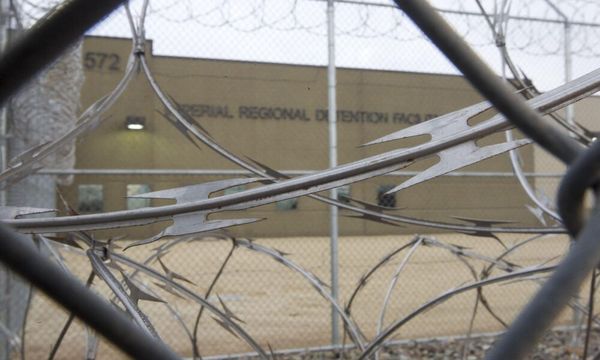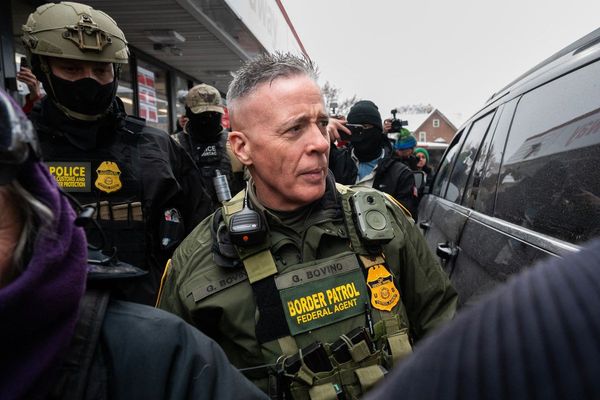
The director of public prosecutions has come under intense cross-party pressure to explain why the China spy trial collapsed as MI5 expressed frustration at the decision and MPs launched a series of inquiries into how it was taken.
The chairs of the home affairs, foreign affairs, justice and national security committees wrote together to Stephen Parkinson, the head of the Crown Prosecution Service (CPS), on Thursday calling on him to give “a fuller explanation for the dropping of charges”.
They asked Parkinson “what steps did you take to make ministers aware” that the case was at risk of collapse because of a change in the case law that required China to be designated a “threat to the national security of the UK”.
The committee chairs also asked if a key government witness, one of the UK’s deputy national security advisers, Matthew Collins, was warned his evidence may be insufficient and “what consideration was given to seeking evidence from other sources” as to the level of security threats posed by China.
Parkinson is expected to be brought before MPs to explain why the CPS dropped charges against Christopher Cash, a former parliamentary researcher, and Christopher Berry, in September, a month before a trial had been due to take place.
Earlier on Thursday, MI5’s director general, Ken McCallum, said he was frustrated at the decision and revealed security services had disrupted a threat from Beijing within the last week, though it was not related to parliament.
“Of course I am frustrated when opportunities to prosecute national security threatening activity are not followed through for what ever reason,” the spy chief said, emphasising he would “never back off from confronting threats to the UK”.
Chinese state actors, McCallum added, posed a national security threat “every day” and he warned that the number of all individuals under investigation by the spy agency over state-based threats from all countries had risen by 35% in the past year.
Keir Starmer, the prime minister, reiterated his disappointment that the case was dropped and stressed there was no government involvement in the decision. Downing Street argued that it would have been “frankly absurd” for the prime minister to intervene when he was told a few days in advance that the case was on the brink of collapse.
Chris Philp, the Conservative shadow home secretary, also wrote to Parkinson demanding he release all the correspondence the CPS exchanged with the government about its evidence.
The row concerns the decision to abandon a prosecution under the 1911 Official Secrets Act against Christopher Cash, a former parliamentary researcher for the Conservative MPs Alicia Kearns and Tom Tugendhat, and Christopher Berry, a teacher, on 15 September.
The CPS said previously it had dropped the case because the government had not provided sufficient evidence that China represented a “threat to the national security of the UK”, a definition required by the espionage legislation, which has since been repealed.
On Wednesday, Starmer published the three witness statements submitted by Collins in an attempt to dispel claims that the government had a hand in disrupting the trial.
But the prime minister still faces questions over why he did not step in to stop the case from being dropped over the contents of the government’s evidence. Parkinson told committee chairs at a private meeting on Wednesday that the evidence was just 5% off what was required, having said earlier that prosecutors tried for “many months” to obtain what was needed.
Ministers have also faced questions over why the final statement submitted by Collins echoed the Labour government’s policy towards China, despite Starmer’s insistence throughout that the collapsed case relied upon the previous Tory government’s stance. Downing Street said Collins had included the line at his own initiative to provide context about the current government policy.
The joint committee on the national security strategy (JCNSS) and the intelligence and security committee (ISC) will both hold inquiries into the matter, which will have the power to compel ministers, prosecutors and government and intelligence officials to give evidence.
Unlike select committees, the ISC has statutory powers to compel witnesses. Its chair, Lord Beamish, said it had “received the intelligence background behind the case” and now planned to “investigate how that classified material was then used”.
The government is still pushing ahead with its reset in UK-China relations, with several high-level trips planned this year including another by the national security adviser, Jonathan Powell. Plans are being drawn up for Starmer to make a bilateral visit to China next year.
China said spying allegations contained in the evidence from Collins were false and that it never interferes in other countries’ internal affairs. An embassy spokesperson added: “The so-called ‘witness statements’ released after the CPS dropped the case are rife with unfounded accusations against China. They are nothing but sheer fabrications made out of thin air.”
A crunch decision over whether to approve controversial proposals for a huge Chinese embassy in east London was delayed for the second time, and will now be taken on or before 10 December.
The head of MI5 signalled he was relatively relaxed about the embassy proposal, which could clear the way for ministers to approve it despite vehement opposition from critics. “MI5 has more than a century of experience of dealing with the national security risks, which do flow from the presence of foreign embassies on British soil,” McCallum said.
He said MI5 and sister agency GCHQ had the available counter-espionage expertise and were advising ministers on how to handle the development. “You would expect us to give our best professional security advice to government and you would expect us to keep that advice private,” he said.
However, Matt Western, the chair of the JCNSS, wrote to the government on Monday warning that approving the embassy was “not in the UK’s long-term interest”.
In a letter to Steve Reed, the housing secretary, who is responsible for taking the decision, Western said the proposed location of the outpost posed “eavesdropping risks in peacetime and sabotage risks in a crisis” owing to its proximity to fibre-optic cables, datacentres and telecoms exchanges serving Canary Wharf and the City.
The Guardian revealed last year that China was blocking the much-needed redevelopment of Britain’s embassy in Beijing while the fate of its own proposed embassy was being decided. The refurbishment of Britain’s embassy is increasingly a pressing concern in parts of government.
The best public interest journalism relies on first-hand accounts from people in the know.
If you have something to share on this subject, you can contact us confidentially using the following methods.
Secure Messaging in the Guardian app
The Guardian app has a tool to send tips about stories. Messages are end to end encrypted and concealed within the routine activity that every Guardian mobile app performs. This prevents an observer from knowing that you are communicating with us at all, let alone what is being said.
If you don't already have the Guardian app, download it (iOS/Android) and go to the menu. Select ‘Secure Messaging’.
SecureDrop, instant messengers, email, telephone and post
If you can safely use the Tor network without being observed or monitored, you can send messages and documents to the Guardian via our SecureDrop platform.
Finally, our guide at theguardian.com/tips lists several ways to contact us securely, and discusses the pros and cons of each.







